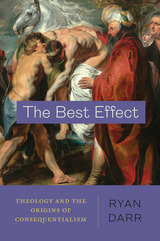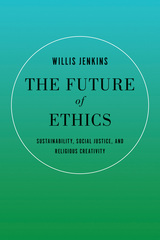
Revolutions and aborted revolutions and bitter civil and "local" wars in the 1980s and since have raised new questions about national security, its definition, and its implementation. Nevertheless, a number of basic philosophical and political issues remain constant at a level deeper than tactical considerations. These are what eight accomplished philosophers, political scientists, Christian ethicists, and policymakers came together to discuss. They ask the fundamental and perduring questions of pacifism, war, intervention, and political negotiation. They focus on such problems as ascertaining the role of the churches in the quest for peace, defining "national interest" and "national purpose," and construing intervention in other that strictly unilateral terms.

Consequentialism—the notion that we can judge an action by its effects alone—has been among the most influential approaches to ethics and public policy in the Anglophone world for more than two centuries. In The Best Effect, Ryan Darr argues that consequentialist ethics is not as secular or as rational as it is often assumed to be. Instead, Darr describes the emergence of consequentialism in the seventeenth century as a theological and cosmological vision and traces its intellectual development and eventual secularization across several centuries. The Best Effect reveals how contemporary consequentialism continues to bear traces of its history and proposes in its place a more expansive vision for teleological ethics.

The Future of Ethics interprets the big questions of sustainability and social justice through the practical problems arising from humanity’s increasing power over basic systems of life. What does climate change mean for our obligations to future generations? How can the sciences work with pluralist cultures in ways that will help societies learn from ecological change?
Traditional religious ethics examines texts and traditions and highlights principles and virtuous behaviors that can apply to particular issues. Willis Jenkins develops lines of practical inquiry through "prophetic pragmatism," an approach to ethics that begins with concrete problems and adapts to changing circumstances. This brand of pragmatism takes its cues from liberationist theology, with its emphasis on how individuals and communities actually cope with overwhelming problems.
Can religious communities make a difference when dealing with these issues? By integrating environmental sciences and theological ethics into problem-based engagements with philosophy, economics, and other disciplines, Jenkins illustrates the wide understanding and moral creativity needed to live well in the new conditions of human power. He shows the significance of religious thought to the development of interdisciplinary responses to sustainability issues and how this calls for a new style of religious ethics.

Most of us are content to see ourselves as ordinary people—unique in ways, talented in others, but still among the ranks of ordinary mortals. Andrew Flescher probes our contented state by asking important questions: How should "ordinary" people respond when others need our help, whether the situation is a crisis, or something less? Do we have a responsibility, an obligation, to go that extra mile, to act above and beyond the call of duty? Or should we leave the braver responses to those who are somehow different than we are: better somehow, "heroes," or "saints?"
Traditional approaches to ethics have suggested there is a sharp distinction between ordinary people and those called heroes and saints; between duties and acts of supererogation (going beyond the expected). Flescher seeks to undo these standard dichotomies by looking at the lives and actions of certain historical figures—Holocaust rescuers, Martin Luther King, Jr., Dorothy Day, among others—who appear to be extraordinary but were, in fact, ordinary people. Heroes, Saints, and Ordinary Morality shifts the way we regard ourselves in relationship to those we admire from afar—it asks us not only to admire, but to emulate as well—further, it challenges us to actively seek the acquisition of virtue as seen in the lives of heroes and saints, to learn from them, a dynamic aspect of ethical behavior that goes beyond the mere avoidance of wrongdoing.
Andrew Flescher sets a stage where we need to think and act, calling us to lead lives of self-examination—even if that should sometimes provoke discomfort. He asks that we strive to emulate those we admire and therefore allow ourselves to grow morally, and spiritually. It is then that the individual develops a deeper altruistic sense of self—a state that allows us to respond as the heroes of our own lives, and therefore in the lives of others, when times and circumstance demand that of us.
READERS
Browse our collection.
PUBLISHERS
See BiblioVault's publisher services.
STUDENT SERVICES
Files for college accessibility offices.
UChicago Accessibility Resources
home | accessibility | search | about | contact us
BiblioVault ® 2001 - 2024
The University of Chicago Press









